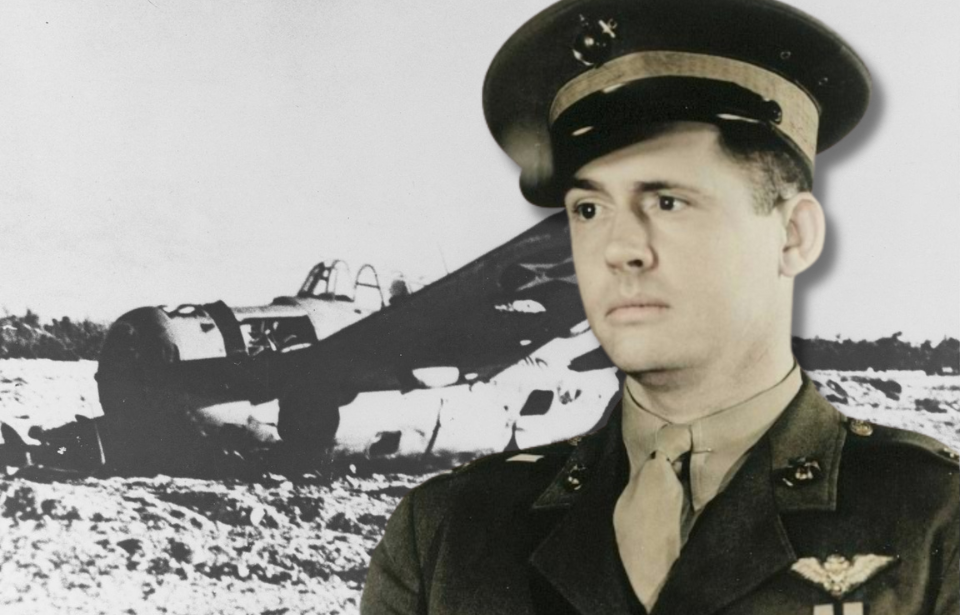Maj. Henry T Elrod was better known by his nickname, “Hammerin’ Hank.” The US Marine Corps aviator had always dreamed of taking to the skies, and his enlistment in the military afforded him the opportunity. While fighting the Japanese on Wake Island in December 1941, he was mortally wounded, and his actions during the engagement afforded him a posthumous Medal of Honor.
Henry T Elrod had an early interest in aviation
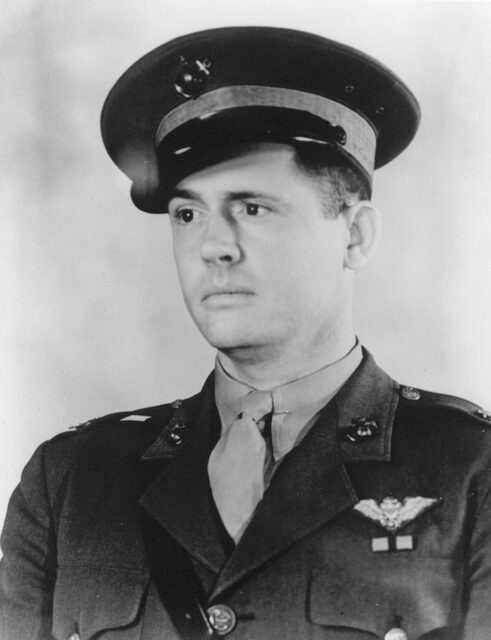
Henry T Elrod was born on September 27, 1905 in Rebecca, Turner County, Georgia. When he was young, his family moved to Thomasville, where he played baseball and football for the local high school. Following graduation, he attended the University of Georgia for a year, after which he transferred to Yale University.
Growing up, Elrod had a strong interest in aviation, which was largely spurred by the barnstormers who visited the area. Seeing the aerial acrobatics impressed him, and he found himself longing to take to the skies himself.
Enlisting in the US Marine Corps
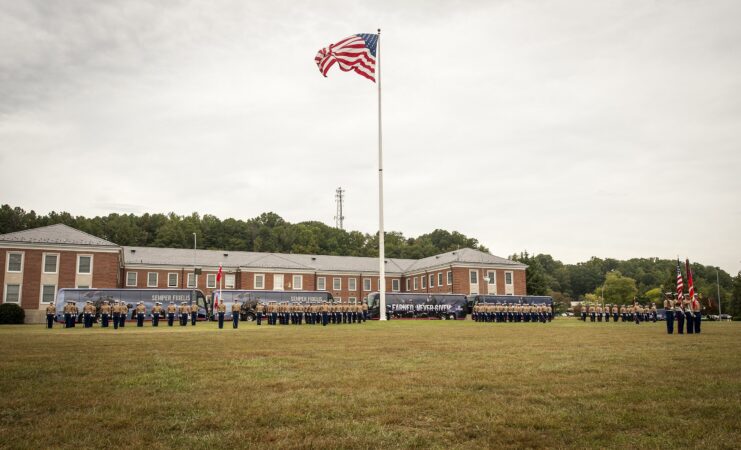
In December 1927, Henry T Elrod enlisted in the US Marine Corps, and was commissioned as a second lieutenant in February 1931. After attending The Basic School (TBS), he was assigned to Naval Air Station Pensacola, where he served as a student aviator and company officer.
While stationed at NAS Pensacola, Elrod twice had to try for his wings. Not known for his willingness to abide by the rules and considered a daredevil in the cockpit, he failed his first flight training program. He was given a second chance in 1935 and just barely passed.
After earning his wings, Elrod was transferred to Marine Corps Base Quantico, where he wore many hats: Marine aviator, school officer, personnel officer and welfare officer. In July 1938, he was ordered to join a squadron in San Diego, after which he was stationed in Hawaii.
The Japanese launch an attack on Wake Island
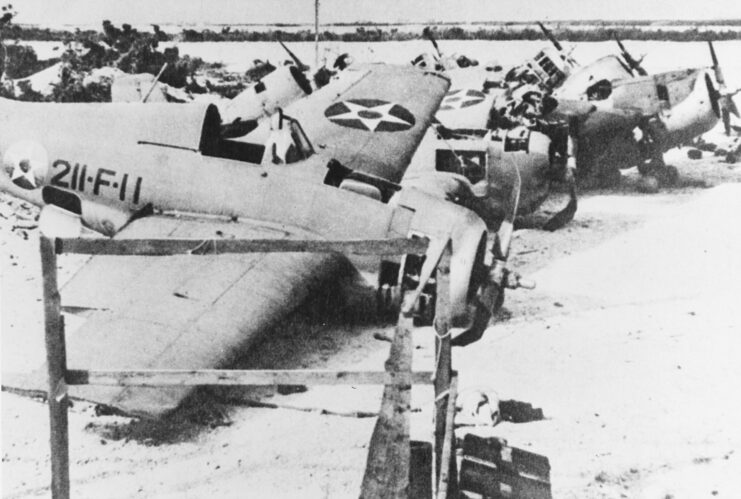
On December 4, 1941, Henry T Elrod and 11 other pilots with Marine Fighter Squadron 211 (VMF-211) took off from the USS Enterprise (CV-6) in their Grumman F4F-3 Wildcats. Their destination was Wake Island, located some 2,300 miles from Oahu and home to a strategic military base.
On the same day of the attack on Pearl Harbor – technically December 8, 1941, given Wake Island sits on the opposite side of the International Date Line – the Japanese launched an aerial attack with 36 Mitsubishi G3Ms. The bombardment saw eight of the 12 Wildcats destroyed, as the other four were out on patrol at the time. Multiple raids followed this, with the aim being to destroy the Americans’ military equipment and infrastructure.
Elrod sank the Kisaragi
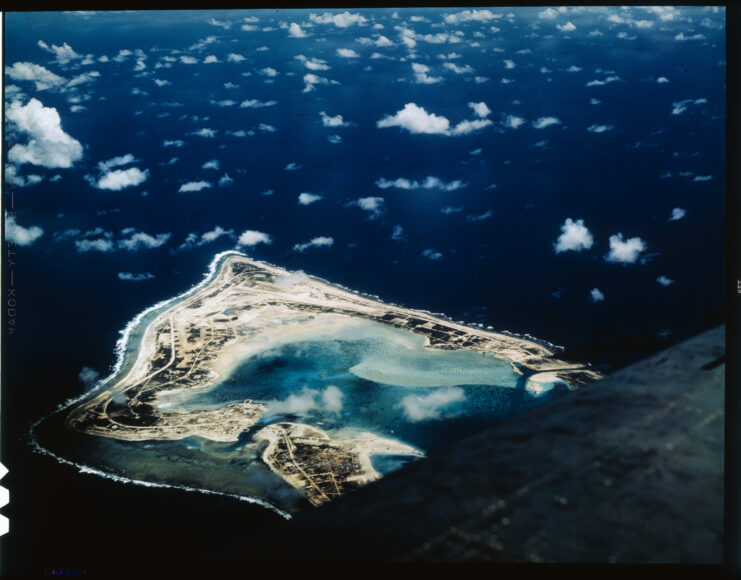
On December 12, 1941, Elrod took to the cockpit of one of the remaining Wildcats and single-handedly fought an enemy fleet of 22 bombers. He shot down two. Later, he conducted a number of successful low-altitude strafing and bombing runs on Japanese ships. One was the destroyer Kisaragi (1925), which sank after Elrod dropped two 100-pound bombs onto her deck, detonating the depth charges stored below.
The hit made the Marine aviator the first person to sink an enemy warship with small-caliber bombs while flying a fighter aircraft.
US forces were dwindling
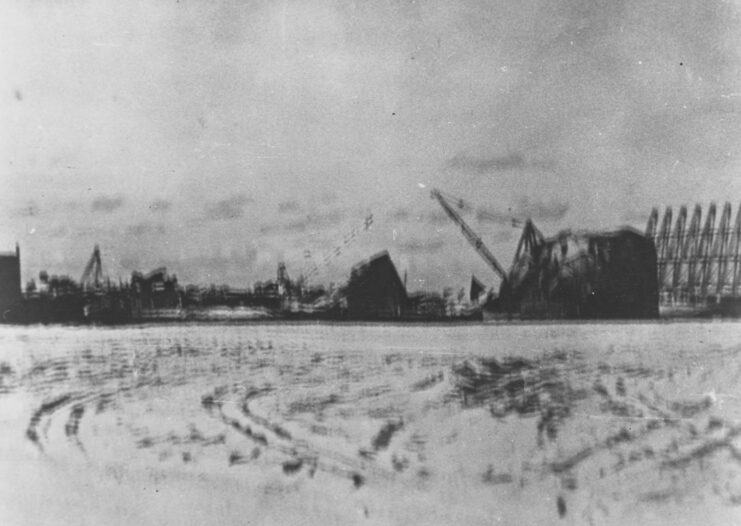
On December 22, 1941, the Imperial Japanese Navy (IJN) landed a unit from their Special Naval Infantry on the shores of Wake Island. By this point, the remaining four Wildcats had been destroyed, and the surviving US forces had dwindled far below the initial strength of over 500 – 449, of which, had been Marine Corps personnel.
Henry T Elrod is fatally wounded by enemy fire
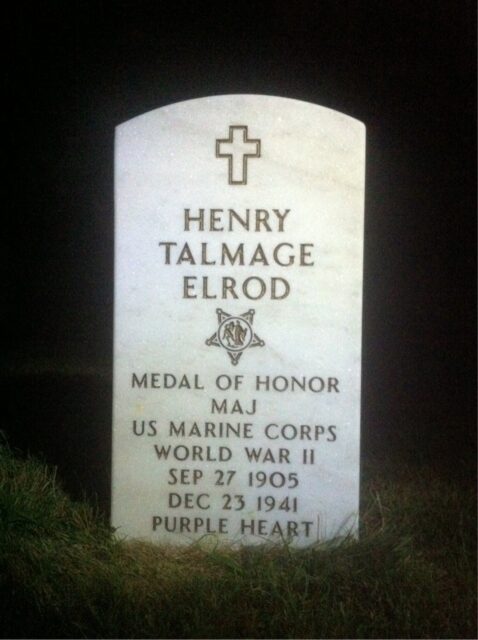
Determined to keep fighting, Henry T Elrod organized the remaining troops to defend the beach. He grabbed a Thompson sub-machine gun to provide cover while unarmed ammunition carriers resupplied a nearby machine gun emplacement.
At just before dawn on December 23, Elrod was preparing to throw a grenade toward an advancing group of enemy troops when he was fatally shot by a Japanese sailor who’d hidden among the dead on the beach. The Marine died instantly.
Wake Island fell to the Japanese later that day and remained in their possession until the end of World War II.
Posthumously awarded the Medal of Honor
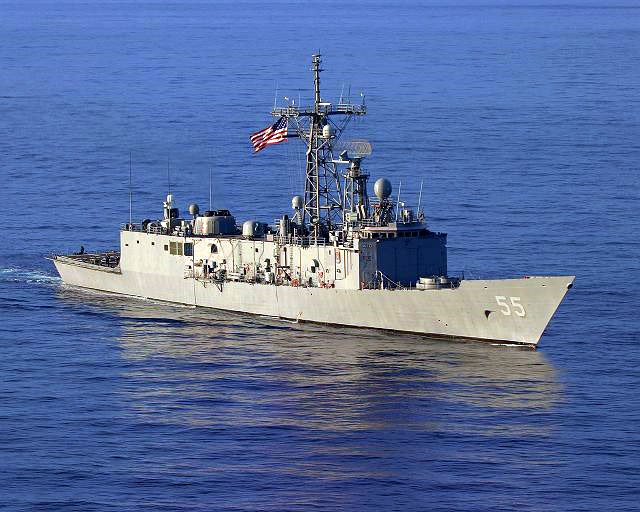
Henry T Elrod was awarded a number of posthumous decorations, including the Navy Presidential Unit Citation, the Purple Heart and the Combat Action Ribbon. The most noteworthy, however, was the Medal of Honor, which was presented to his widow by Gen. Alexander A. Vandegrift on November 8, 1946. While awarded after the Second World War, the efforts for which it was earned made Elrod the first Marine aviator to receive the MoH in the conflict.
While initially buried on Wake Island, the Elrod was reinterred in Arlington National Cemetery in October 1947.
More from us: George Patton Called Creighton Abrams a ‘World Champion’ Tank Commander
In the decades since his passing, Henry T Elrod has been memorialized in a number of ways. Along with being inducted into the Georgia Aviation Hall of Fame in 1995, the US Navy Oliver Hazard Perry-class frigate USS Elrod (FFG-55) was named in his honor. As well, roads at the Marine Corps Officer Candidate School, Marine Corps Air Station Miramar and Camp H.M. Smith are named for him.
